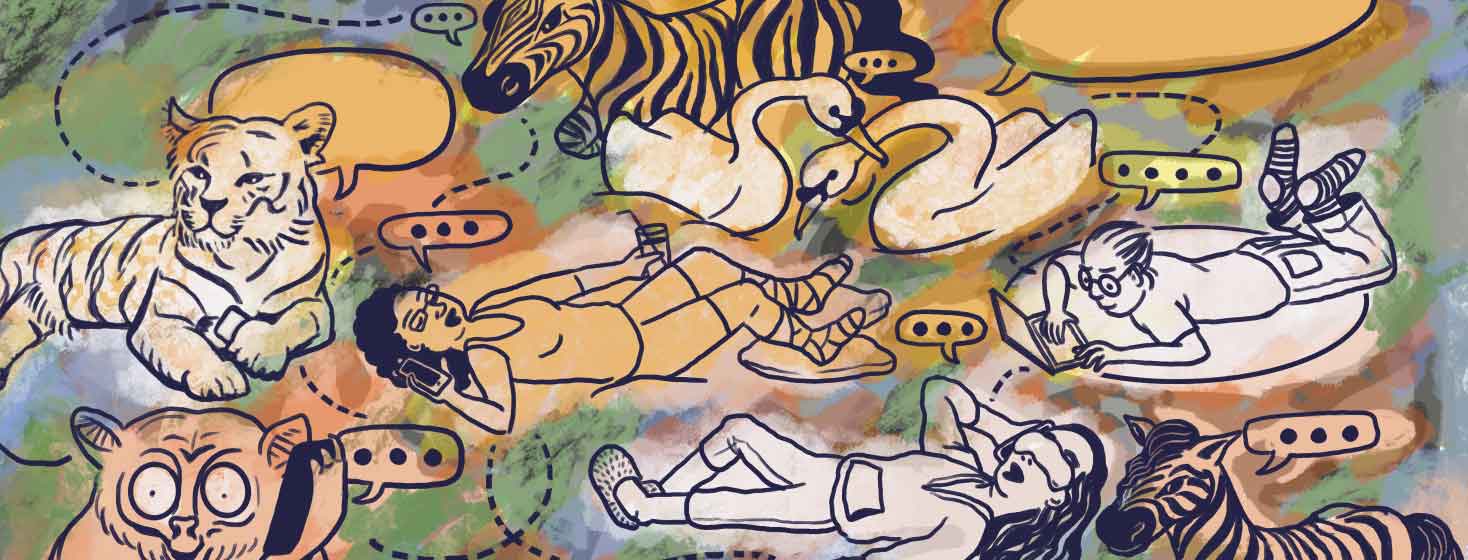Finding Friendship in the Rare Disease Community
When I was first diagnosed with a rare disease, I struggled to find a sense of community. Like many others, I had never heard of my disease before, let alone met anyone else who had it.
I joined Facebook groups dedicated to the condition, but for a variety of reasons they just weren’t a good fit for me. In particular, seeing heartbreaking photos of others in clear distress and pain so similar to my own brought me more sadness. It simply wasn’t the right platform for me at that point in my journey.
Connecting with others in the rare disease community
So I started writing, making videos, and using my social media accounts (originally dedicated to 1 specific health condition) to spread awareness for my multiple conditions. Several people with the same rare disease found my page and we had great one-on-one discussions.
However, as much as I wanted to be an open book and be there for anyone who reached out, there were times when talking about my specific experiences felt soul-crushing.
A different kind of support from the larger community
When I learned that one of my surgeries had been canceled with no expectation of being rescheduled anytime soon, I couldn’t talk about it at all. My mental health was deeply suffering. I still greatly appreciated the support from my friends in the community, but in these times I also found a lot of support from my friends who had other autoimmune diseases and chronic conditions.
There was something freeing about conversations with these friends in the larger community. We could talk about broad concepts that we all understood, but none of us knew all of the painful and deeply personal details of each others’ conditions firsthand.
Similarities in navigating chronic illness
Of course, we were there to listen, learn, and provide support, but these discussions also helped give me some much-needed emotional distance from my own disease. And despite the major differences in our conditions and experiences, we found that we could all relate to the difficulties of navigating chronic illnesses in general:
"Wow, I can’t believe your friend said that! So many people mean well but don’t understand."
"The doctor’s office should definitely be communicating and scheduling this faster – make that follow-up call."
"Oh my gosh, I think there’s something wrong with my stitches, and I’m going to an emergency follow-up this afternoon. Has this ever happened to you?"
"Yes, definitely call your surgeon about this concern. You’re not being bothersome – this is his job and your health is important."
Supportive friendship in action
One of my best friends in the autoimmune disease community is also my neighbor and we found out that we were both having surgeries for different conditions at the same time. During recovery, we checked in on each other, recommended TV shows, and brought each other snacks.
She, with her limited mobility resting her legs on the couch, and me, with my limited vision lying on the floor with my eyes closed – we felt like quite the pair as we cried and laughed together. We were both going through something very different physically, emotionally, and mentally, but there was so much that we could share. I’m so grateful that we could be there for each other.
We offer support in this community
And that’s why I’m happy to be a part of RareDisease.net. I’m looking forward to connecting with more individuals here, learning about your experiences, and helping to provide support whenever I can.
As different as our experiences are, we have so much in common.

Join the conversation